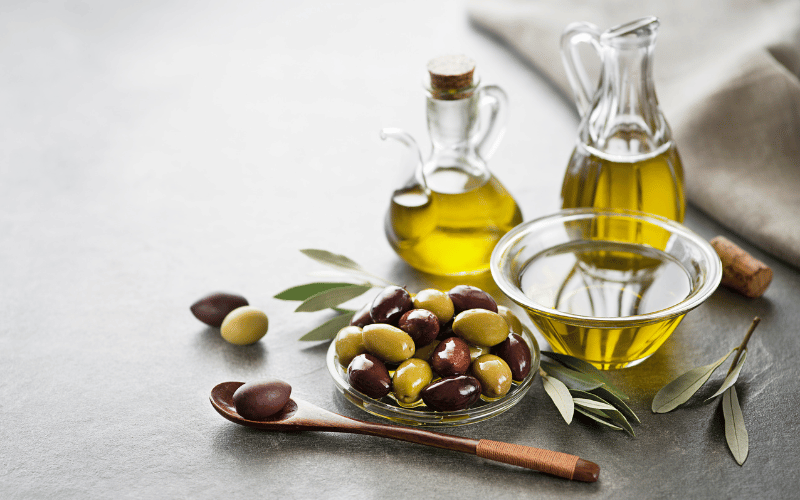Food 9: Olive Oil

Olive oil, particularly extra virgin olive oil, is renowned for its health benefits, primarily attributed to its high content of monounsaturated fats. These healthy fats are known to improve heart health and have been shown to have a positive effect on insulin sensitivity. Olive oil is also rich in antioxidants like polyphenols, which help combat inflammation and oxidative stress, both of which are prevalent in insulin resistance.
The role of olive oil in managing insulin resistance is substantial. Its monounsaturated fats help in reducing inflammation, a key contributor to insulin resistance, and can improve the body’s ability to use insulin effectively. Regular consumption of olive oil has been associated with a lower risk of developing type 2 diabetes, demonstrating its protective effect against insulin resistance.
Incorporating olive oil into your diet is straightforward. It can be used in cooking, as a salad dressing, or drizzled over cooked dishes. When using olive oil for cooking, it’s important to use it at appropriate temperatures to maintain its nutritional integrity.
Olive oil can be used creatively in the kitchen. It can be infused with herbs for a flavorful dressing, used in baking as a healthier fat option, or added to marinades. The versatility of olive oil makes it an easy and delicious addition to various dishes.
Olive oil is an essential ingredient in a diet focused on managing insulin resistance. Its healthy fat profile, anti-inflammatory properties, and antioxidant content make it an effective food choice for improving insulin sensitivity and promoting overall metabolic health. (9)